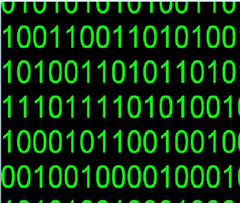A little background first: As a concluding project to studying the "Progressive Era" in American History, our 8th graders have to give a class presentation about a National Park of their choice. This is a "role playing" project which has them take on the persona of a park ranger who must give a presentation to a congressional over-site committee. The goal of the presentation is to convince committee members to not de-fund or close their park. Here's a link to the project site if your interested. As an aside, I like this project, in part, because a component of the rubric has them contacting an actual NP Ranger. Most students just want to email, but a majority wind up having to make a phone call and talk to a live Ranger. We've got to work on our people skills along side the digital ones!
In the process of doing research on their national parks, I was teaching them how to use the filetype: operator in Google to search for KMZ files when low and behold the top entry for a Shenandoah National Park search was from our school wiki page.
In the process of doing research on their national parks, I was teaching them how to use the filetype: operator in Google to search for KMZ files when low and behold the top entry for a Shenandoah National Park search was from our school wiki page.
The lesson my wide-eyed students took away from this was that their work, which gets posted online, is important. It's not important because they are getting a grade, or because it's for a presentation they will have to give in front of an actual audience, but rather because their work is digitally permanent.
It was neat to see their reactions when I told them that file was uploaded back in 2008...an eternity ago for a middle schooler! If the work which a student did almost four years ago is coming up in the search results now, what might happen to the work they post today?
The answer to that question has all sorts of implications, many of which I won't get into here, but the most obvious one is of quality. All of the sudden knowing that someone from the future will use their work all of the sudden ups the ante on their effort.
Never discount the power of audience, either now...or in future!
If you're interested, here is a list of helpful search links and/or sites:
It was neat to see their reactions when I told them that file was uploaded back in 2008...an eternity ago for a middle schooler! If the work which a student did almost four years ago is coming up in the search results now, what might happen to the work they post today?
The answer to that question has all sorts of implications, many of which I won't get into here, but the most obvious one is of quality. All of the sudden knowing that someone from the future will use their work all of the sudden ups the ante on their effort.
Never discount the power of audience, either now...or in future!
If you're interested, here is a list of helpful search links and/or sites:
- Google Search Operators--http://www.googleguide.com/advanced_operators.html
- My Diigo sites about Search--
http://www.diigo.com/user/rjacklin/search - Power Searching with Google--
http://www.google.com/insidesearch/landing/powersearching.html







